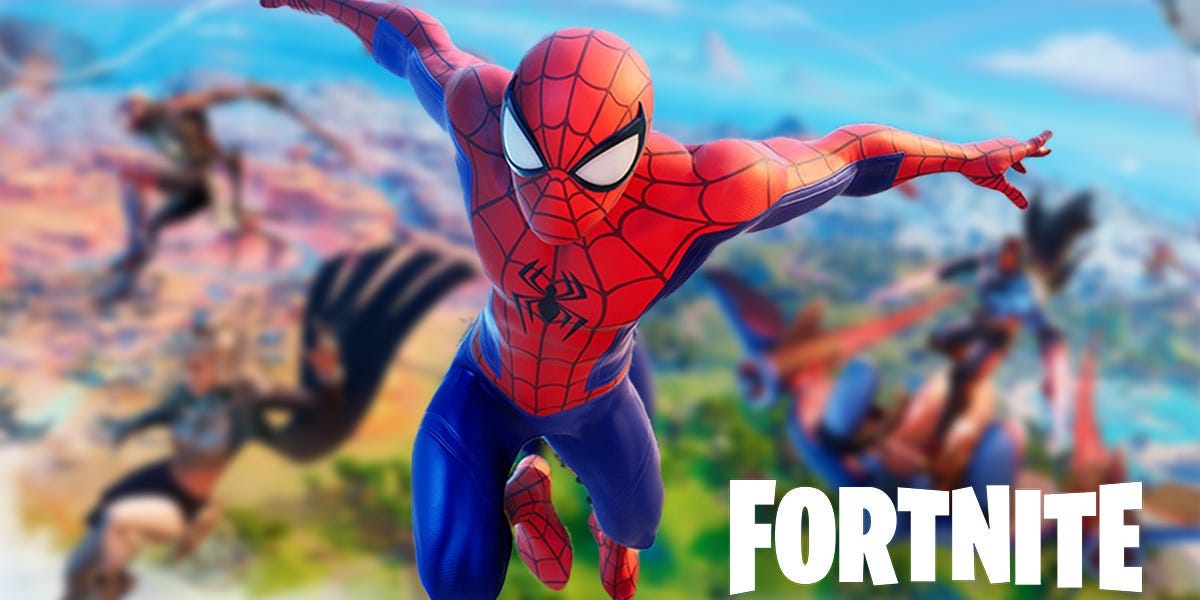In the near future, when the “metaverse” becomes real, all the costumes you bought for your avatar in “Fortnite” will seamlessly move to “Minecraft” and “Call of Duty” and whatever other games you want to play.
At least that’s what proponents of so-called “Web3” concepts — like NFTs, blockchain technology, and cryptocurrency — would have you believe.
The latest such example comes from who else but Linkin Park cofounder and lead singer Mike Shinoda, who took to social media this weekend to reveal that vision of the future.
“Imagine taking your favorite skin from ‘Valorant,’ and using it [in] ‘Fortnite.’ And not paying extra, because you own it. Then using it in ‘CoD,’ ‘Minecraft,’ even Twitter, IG. So many possibilities, no?” he said on Saturday.
There’s only one problem: The people who actually make games have repeatedly pointed out the many flaws with this vision of the future, including one person who works on the very game used in Shinoda’s example.
“Once again, you cannot take a ‘skin’ from one game, drop it into another, and expect good results — even if they were made in the same engine,” Riot Games’ principal engineer Jules Glegg said on Sunday. She was speaking specifically to the technical issues with moving an “asset” from one game to another.
The term “asset” is used broadly in video game development as “shorthand for anything that goes into a video game — characters, objects, sound effects, maps, environments, etc.,” according to game engine maker Unity.
A character “skin” is an asset — and moving it from one game to another is a technical nightmare. “The scales won’t match. The rigs won’t match. The [level of detail] won’t match. The hitboxes won’t match. The shader budgets won’t match,” she said.
It’s a sentiment shared by two other game developers Insider spoke with this week.
“You bought a Big Mac in McDonald’s, but you can’t just go over to Burger King and be like, ‘Now make me a Big Mac,'” Bithell Games COO Alexander Sliwinski said in a phone interview on Monday.
In the case of burger joints, the issue is clear: Just because they both make burgers doesn’t mean you should expect to get the same burger from one at the other. They are not interoperable — and interoperability is central to the idea that you can seamlessly move a piece of one game into another.
Why wouldn’t, say, a t-shirt you bought for a character in one game be able to transfer to your character in another game? Isn’t it just an image?
The short answer is no, it’s much more than just an image — and all the parts that make up that shirt are specific to the game it was made to be used in.
“Everything you see in a game is actually dozens of assets working together as defined by the code,” game maker and consultant Rami Ismail told Insider.
“If you actually wanna bring along that t-shirt, you run into a problem that a t-shirt is made for a specific character,” he said. “So the fit will be a specific way. It’s animated a specific way. It has physics built in a specific way — again, for that custom size, for that custom gravity, of the first game. That’s not gonna translate to the second game.”
These are just the initial technical issues that face such a concept, they said, before you’d have to tackle legal considerations around intellectual property rights — to say nothing of the resources required to make this all work.
“Just because something is non-tangible doesn’t mean that someone didn’t make it,” Sliwinski said.
And, for many game makers, the financial and creative incentive isn’t there to make the NFT dream of interoperability a reality.

